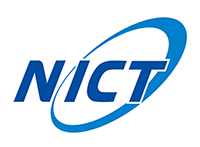Projects
Naruse Group
Recently, Brain ICTs, such as BMI technology, have progressed rapidly. However, many of these technologies can be used only in laboratories or hospitals. The aim of my research is to establish Brain ICTs that improve the quality of daily life.
One of my research topics is the development of a novel system that can easily measure brain activity in naturalistic environments. I have already developed a mobile-wireless EEG device that enables measurement of brain activity in electrically noisy environments. Moreover, to improve the usability of the EEG device, I have developed a dry flexible electrode which enables EEG measurement without conductive pastes. I am advancing this development based on collaboration between government, industry and academia, and the EEG device and flexible electrode are already launched by Japanese companies.
Another research topic of my lab is the development of novel signal processing techniques to extract brain information from EEG/MEG data in electrically noisy environments. I use techniques such as time-frequency analysis, machine learning, and Bayes’ inference. In many cases, I first verify the novel signal processing techniques using low-noise MEG system, and then implement the techniques in the mobile-wireless EEG system. I am developing applications which can assist people not only in medical services but also in education and communication by using the EEG system in which the signal processing techniques are implemented.
The other research topic is the study of dynamics of EEG/MEG. Currently, understanding the waveforms of EEG/MEG is based on empirical rules in many cases. Knowledge of the dynamics is especially useful to understand EEG/MEG waveforms.
Ihara Group
My research focuses on language comprehension mechanisms in the human brain and the practical applications of brain information related to language comprehension measured in real-life environments.
In daily communication, language does not always provide complete information; however, the human brain can comprehend a message quickly and flexibly depending on contextual cues. We use non-invasive brain activity measurement and brain stimulation modalities to investigate the neural basis of flexible language comprehension, mainly lexical access and contextual processing.
Additionally, we are currently developing electroencephalogram-based techniques for the objective evaluation of information comprehension and mental state in real-life environments. We are also performing neuromodulatory experiments aimed at improving language functions in healthy adults and patients with aphasia.


